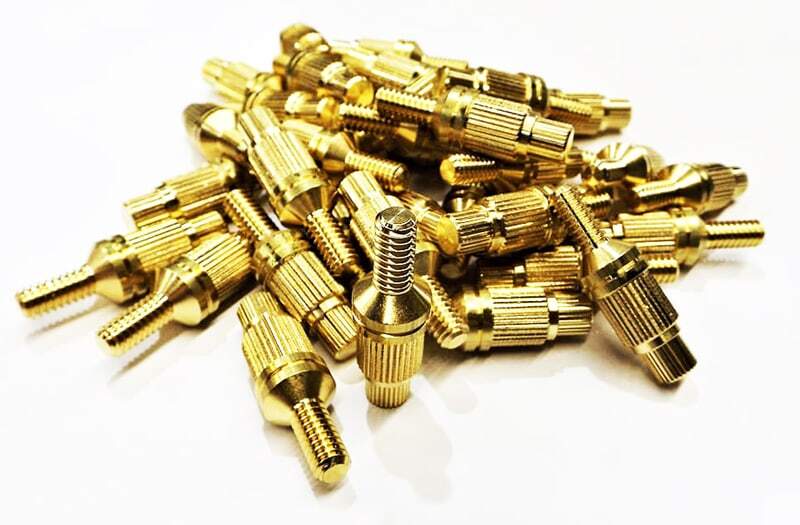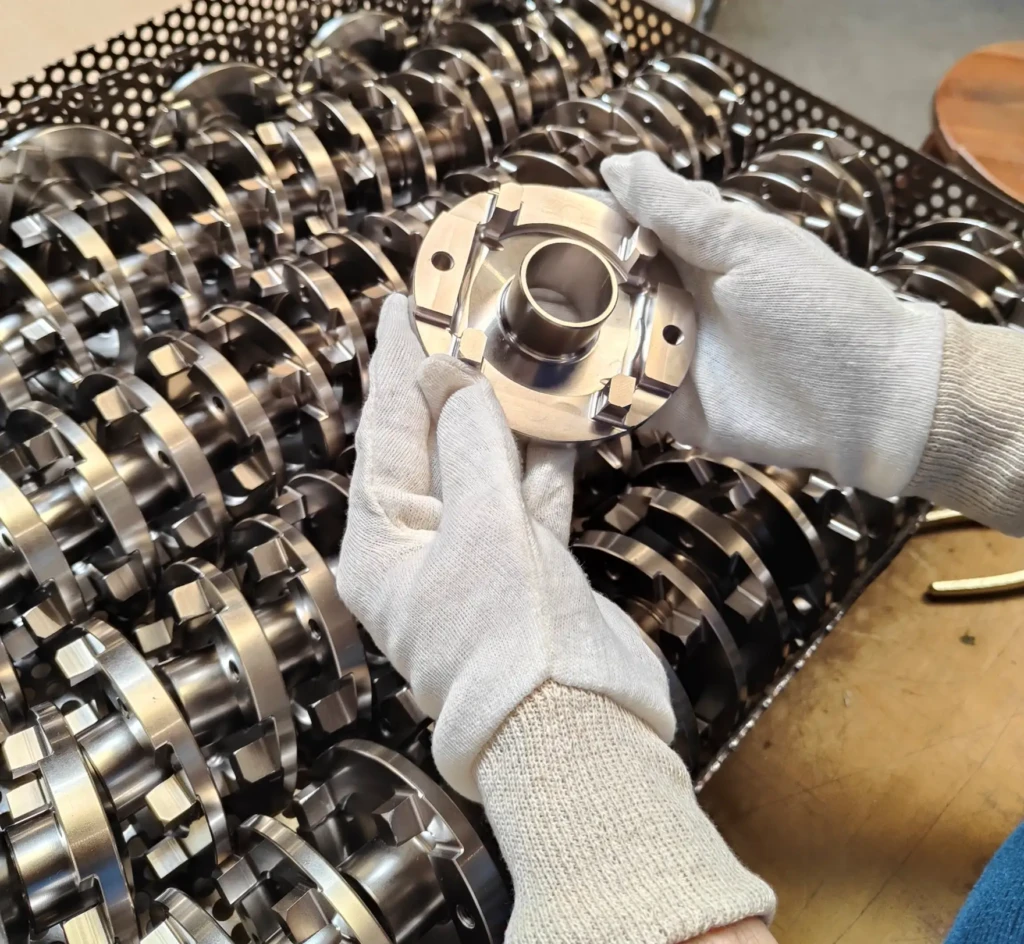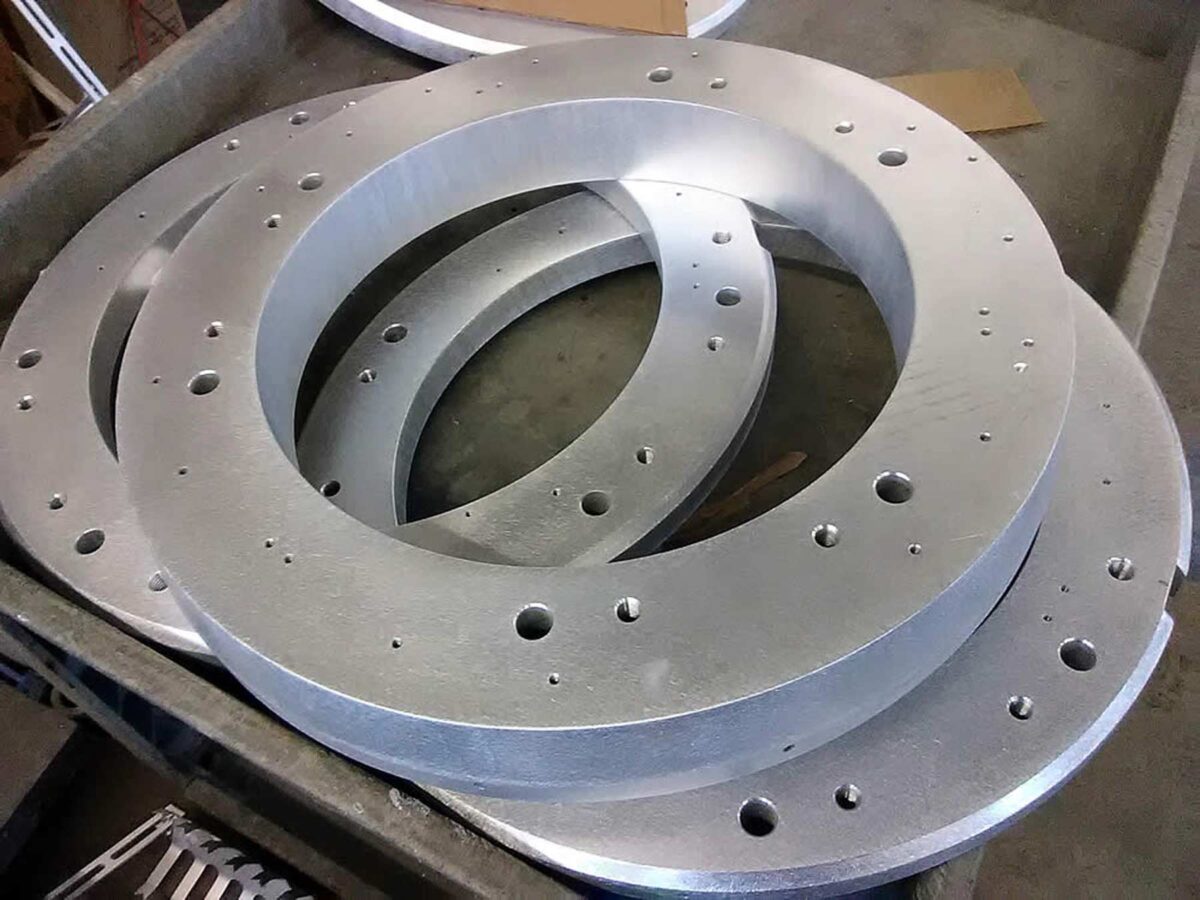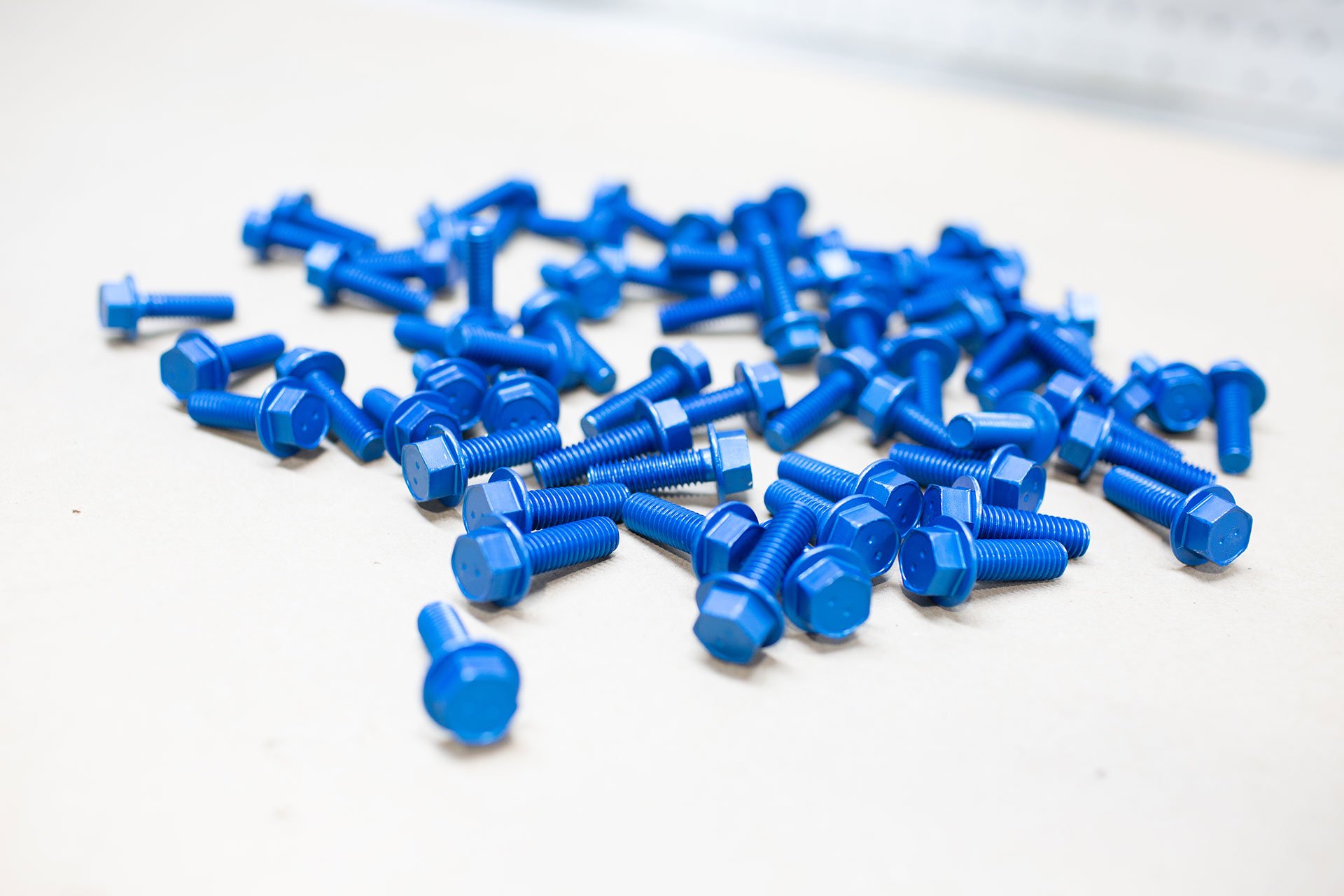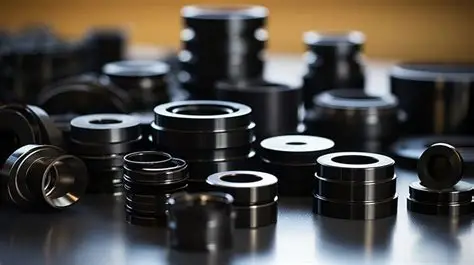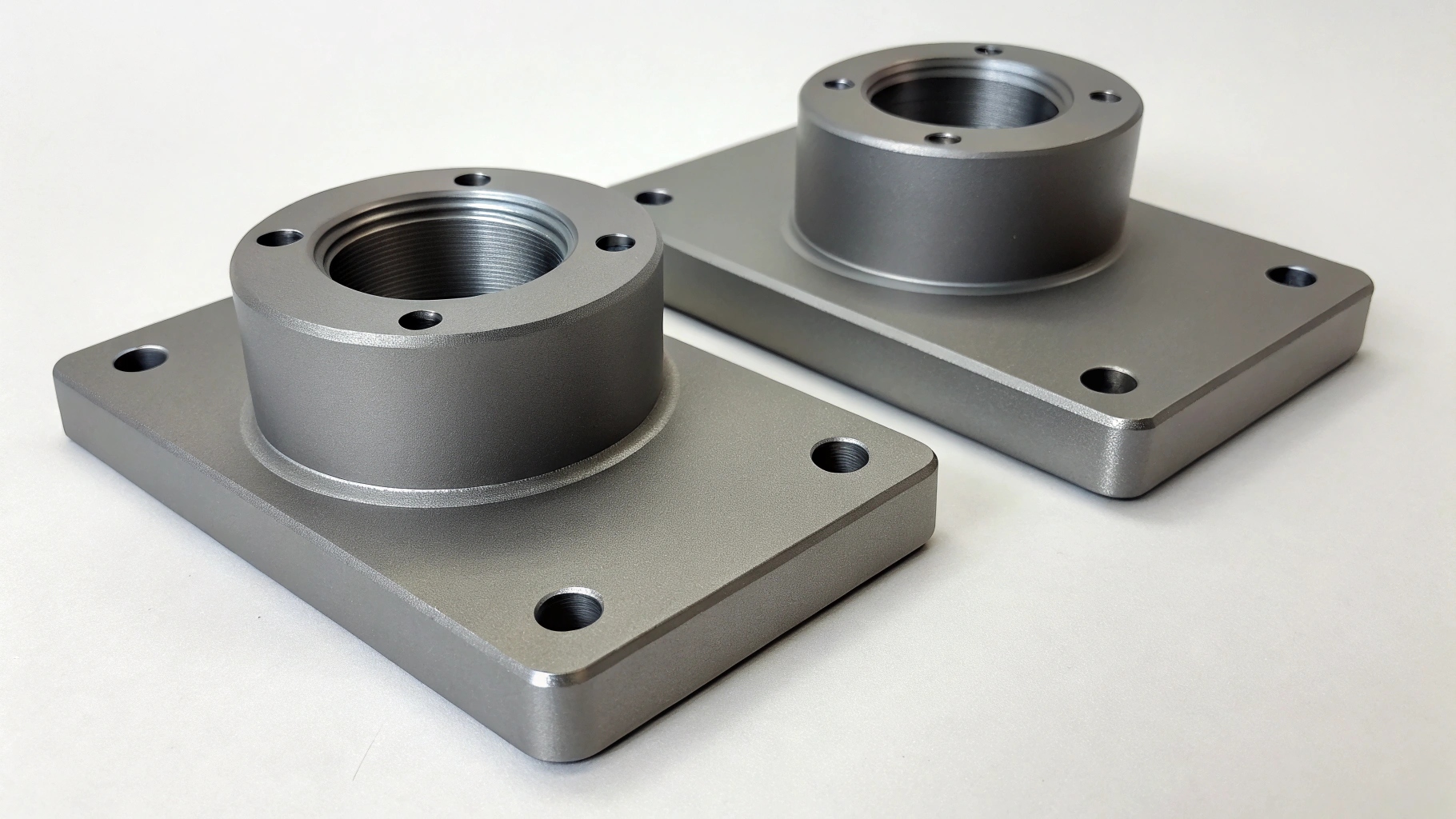Swiss Screw Machining for Miniature Brass Components: Precision Manufacturing for Complex Small Parts
The evolution of precision manufacturing has established Swiss screw machining as the gold standard for producing intricate miniature components with exceptional dimensional accuracy. Swiss screw machining for miniature brass components represents a specialized manufacturing discipline that combines advanced CNC technology with material science expertise to create small, complex parts that meet the rigorous demands of modern industries. At JLYPT CNC Machining, we have perfected the art of Swiss screw machining for miniature brass components, delivering unparalleled precision for medical devices, electronics, aerospace systems, and industrial applications.
The Technical Foundation of Swiss Screw Machining for Miniature Brass Components
Swiss-type lathes, originally developed for watchmaking in Switzerland, have evolved into sophisticated CNC machining centers capable of producing miniature brass components with micron-level tolerances. The unique architecture of these machines makes them ideally suited for Swiss screw machining for miniature brass components that require exceptional precision and complex geometries.
Machine Architecture and Capabilities
Guide Bushing Technology
The cornerstone of Swiss screw machining for miniature brass components is the guide bushing system, which provides unparalleled support and stability during machining operations:
-
Fixed guide bushing maintains constant support within 0.0005″ of the material diameter
-
Thermally stable construction minimizes thermal expansion effects on precision
-
Hardened tool steel materials ensure long-term accuracy and wear resistance
-
Custom bushing configurations for specialized material sizes and shapes
Multi-Axis Machining Integration
Modern Swiss screw machines for Swiss screw machining for miniature brass components incorporate comprehensive capabilities:
-
Main and subspindle coordination for complete part processing in single setup
-
Live tooling stations with C-axis control for complex milling operations
-
Backworking operations enabling complete machining from both ends
-
Automated material handling for continuous production of miniature brass components
Brass Alloy Selection for Miniature Components
The selection of appropriate brass alloys is critical for successful Swiss screw machining for miniature brass components:
Free-Cutting Brass (C36000)
-
Excellent machinability rating of 100% (the industry standard)
-
Lead content of 2.5-3.7% for superior chip formation
-
Good corrosion resistance for most applications
-
Typical applications: Electrical connectors, fittings, fasteners
Architectural Brass (C38500)
-
High machinability (90% of C36000)
-
Reduced lead content for environmental compliance
-
Excellent plating characteristics for decorative applications
-
Typical applications: Consumer electronics, decorative hardware
Forging Brass (C37700)
-
Good hot workability for secondary operations
-
Excellent mechanical properties for structural components
-
Machinability rating of 80% of C36000
-
Typical applications: Valves, pressure-containing parts
Table: Brass Alloy Properties for Swiss Screw Machining for Miniature Brass Components
| Property | C36000 | C38500 | C37700 | Test Method |
|---|---|---|---|---|
| Machinability Rating | 100% | 90% | 80% | CDA Standard |
| Tensile Strength (psi) | 54,000 | 61,000 | 58,000 | ASTM E8 |
| Yield Strength (psi) | 45,000 | 54,000 | 52,000 | ASTM E8 |
| Elongation (%) | 25 | 18 | 25 | ASTM E8 |
| Hardness (Rockwell B) | 65 | 72 | 70 | ASTM E18 |
Advanced Machining Strategies for Swiss Screw Machining for Miniature Brass Components
The production of precision miniature brass components requires sophisticated machining strategies specifically developed for Swiss screw machining for miniature brass components.
Tooling Technology and Optimization
Cutting Tool Selection
-
Micro-grain carbide inserts with specialized geometries for brass machining
-
Polished rake faces to prevent material adhesion and built-up edge
-
Sharp cutting edges with minimal hone for clean material separation
-
CVD diamond coatings for extended tool life in high-volume production
Tool Geometry Optimization
-
High positive rake angles (10-15°) for free-cutting action in brass
-
Specialized chipbreaker designs for controlled chip formation
-
Reduced cutting forces through optimized tool geometries
-
Custom tool development for unique miniature component features
Machining Parameter Optimization
Speed and Feed Optimization
Successful Swiss screw machining for miniature brass components requires precisely calibrated machining parameters:
Turning Operations
-
Surface speeds: 400-800 SFM for optimal tool life and surface finish
-
Feed rates: 0.0005-0.003 IPR based on feature size and tolerance requirements
-
Depth of cut: 0.010-0.100 inches depending on tool strength and stability
-
Finish passes: 0.001-0.005 inches for dimensional accuracy
Milling and Drilling Operations
-
Spindle speeds: 5,000-15,000 RPM for miniature tooling
-
Feed rates: 0.0001-0.001 IPT for small diameter tools
-
Peck drilling cycles for deep hole drilling in brass
-
High-speed machining strategies for complex features
Table: Machining Parameters for Swiss Screw Machining for Miniature Brass Components
| Operation Type | Speed (SFM) | Feed (IPR) | DoC (inches) | Tool Material | Coolant Type |
|---|---|---|---|---|---|
| Rough Turning | 500-700 | 0.002-0.005 | 0.03-0.10 | Uncoated Carbide | Soluble Oil |
| Finish Turning | 600-800 | 0.0005-0.002 | 0.001-0.005 | Diamond Coated | Soluble Oil |
| Threading | 200-400 | 0.001-0.003 | Multiple passes | CBN | Soluble Oil |
| Drilling | 150-300 | 0.001-0.004 | Full depth | Carbide | Soluble Oil |
| Milling | 300-500 | 0.0005-0.002 | 0.005-0.020 | Micro-grain | Soluble Oil |
Technical Challenges in Swiss Screw Machining for Miniature Brass Components
The production of miniature brass components presents unique challenges that require specialized approaches in Swiss screw machining for miniature brass components.
Dimensional Stability and Accuracy
Thermal Management
-
Constant temperature control in machining environment (±2°F)
-
Thermal growth compensation in machine tool structures
-
Controlled coolant temperature for consistent machining conditions
-
In-process measurement compensation for thermal effects
Vibration and Chatter Control
-
Dynamic stability analysis of tooling and workpiece systems
-
Optimal spindle speed selection to avoid resonant frequencies
-
Custom tool holder designs for improved damping characteristics
-
Advanced CAM programming with smooth motion control
Surface Finish and Feature Definition
Surface Quality Optimization
-
Progressive finishing strategies with reduced feed rates
-
Specialized tool paths for improved surface texture
-
Micro-finishing operations for critical surfaces
-
Deburring techniques specific to brass alloys
Miniature Feature Machining
-
Micro-tooling applications for features under 0.010 inches
-
High-spindle speed requirements for small diameter tools
-
Advanced tool pressure management to prevent tool deflection
-
Custom workholding solutions for fragile miniature components
Quality Assurance for Swiss Screw Machining for Miniature Brass Components
The production of precision miniature components demands rigorous quality control systems specifically designed for Swiss screw machining for miniature brass components.
Dimensional Metrology
Advanced Measurement Technologies
-
Vision measurement systems with sub-micron resolution
-
Laser micrometrology for non-contact dimensional verification
-
Custom gauge development for complex miniature features
-
Statistical process control with real-time data collection
Surface Analysis
-
White light interferometry for surface roughness measurement
-
Scanning electron microscopy for micro-feature verification
-
Profilometer tracing for form and contour verification
-
Optical comparator analysis for rapid feature verification
Material and Process Validation
Material Certification
-
Chemical composition verification using OES spectroscopy
-
Mechanical property validation per material specifications
-
Microstructural analysis for grain structure and inclusions
-
Corrosion testing for specific application requirements
Process Validation
-
First article inspection with comprehensive reporting
-
Capability studies for critical dimensions (Cpk > 1.67)
-
Gage R&R studies for measurement system validation
-
Process documentation for complete traceability
Case Studies: Successful Swiss Screw Machining for Miniature Brass Components
Case Study 1: Medical Device Connector Components
Challenge: A medical device manufacturer required Swiss screw machining for miniature brass components for a new generation of electrical connectors used in patient monitoring equipment. The components featured multiple diameters, precision threads, and micro-milled slots with tolerances of ±0.0002 inches.
Swiss Screw Machining for Miniature Brass Components Solution:
JLYPT implemented an advanced manufacturing strategy:
-
8-axis Swiss screw machining with synchronized main and subspindle operation
-
Micro-tooling applications for slots and features under 0.015 inches
-
In-process gaging for real-time dimensional control
-
Automated deburring integrated into the machining cycle
-
Cleanroom packaging for medical device compliance
Results:
-
Achieved dimensional accuracy of ±0.00015 inches on all critical features
-
Surface finish of 8 μin Ra exceeded medical device requirements
-
99.8% first-pass yield rate on production quantities of 50,000+ components
-
Successfully passed medical electrical safety testing per IEC 60601
Case Study 2: Aerospace Fuel System Components
Challenge: An aerospace systems integrator needed Swiss screw machining for miniature brass components for miniature check valves used in aircraft fuel systems. The components required precision sealing surfaces, complex internal geometries, and compliance with AS9100 quality standards.
Swiss Screw Machining for Miniature Brass Components Solution:
Our comprehensive approach included:
-
Multi-operation machining with complete part processing in single setup
-
Specialized tooling for internal contour machining and sealing surfaces
-
Cryogenic machining techniques for critical features to maintain dimensional stability
-
100% automated inspection with vision system integration
-
Material traceability from mill source to finished component
Results:
-
Achieved concentricity of 0.0003 inches between internal and external features
-
Leak testing passed at 150% of maximum operating pressure
-
45% reduction in manufacturing cost through process optimization
-
Successful implementation in next-generation aircraft fuel systems
Case Study 3: Electronics Connector Pins
Challenge: An electronics manufacturer required Swiss screw machining for miniature brass components for high-density connector pins with complex cross-section profiles and precision press-fit features. The components needed to maintain dimensional stability through plating processes and assembly operations.
Swiss Screw Machining for Miniature Brass Components Solution:
JLYPT’s specialized manufacturing strategy incorporated:
-
High-speed Swiss machining with spindle speeds up to 12,000 RPM
-
Custom form tooling for complex profile generation
-
In-process laser marking for part identification and traceability
-
Statistical process control with real-time adjustment capabilities
-
Plating process integration with dimensional compensation
Results:
-
Maintained cross-section profile within 0.0003 inches through entire process
-
Achieved plating thickness consistency of ±0.00005 inches
-
Production volume of 250,000 components per month with 99.9% quality level
-
Successful implementation in high-reliability computing applications
Future Trends in Swiss Screw Machining for Miniature Brass Components
The manufacturing landscape for miniature brass components continues to evolve with emerging technologies and methodologies enhancing the capabilities of Swiss screw machining for miniature brass components.
Advanced Manufacturing Technologies
Smart Manufacturing Integration
-
IoT-enabled machine monitoring for real-time process optimization
-
Adaptive control systems with in-process adjustment capabilities
-
Predictive maintenance using machine learning algorithms
-
Digital twin technology for virtual process validation
Hybrid Manufacturing Approaches
-
Additive and subtractive integration for complex component features
-
Laser processing integration for specialized feature generation
-
In-process quality verification with closed-loop correction
-
Automated material handling for lights-out manufacturing
Material Science Advancements
Next-Generation Brass Alloys
-
Enhanced mechanical properties for demanding applications
-
Improved environmental compatibility with reduced lead content
-
Specialized alloy development for specific industry requirements
-
Composite brass materials with enhanced performance characteristics
According to research from the Copper Development Association, advanced brass alloys are being developed with improved strength-to-weight ratios and enhanced corrosion resistance for next-generation applications in medical, aerospace, and electronics industries.
Conclusion: Excellence in Swiss Screw Machining for Miniature Brass Components
The manufacturing of miniature brass components through Swiss screw machining represents a specialized discipline that demands exceptional technical expertise, advanced equipment, and rigorous quality control. Success in Swiss screw machining for miniature brass components requires not only mastery of machining processes but also deep understanding of material behavior, application requirements, and quality standards.
At JLYPT CNC Machining, our commitment to advancing Swiss screw machining for miniature brass components ensures that our clients receive components that meet the most demanding specifications while optimizing manufacturing efficiency and cost-effectiveness. The future of miniature component manufacturing will continue to evolve with digitalization, advanced materials, and smart manufacturing technologies driving innovation and capability enhancement.
For organizations seeking expert partners in Swiss screw machining for miniature brass components, JLY Precision Technology’s CNC machining services offers comprehensive solutions with demonstrated expertise in precision miniature component manufacturing.

